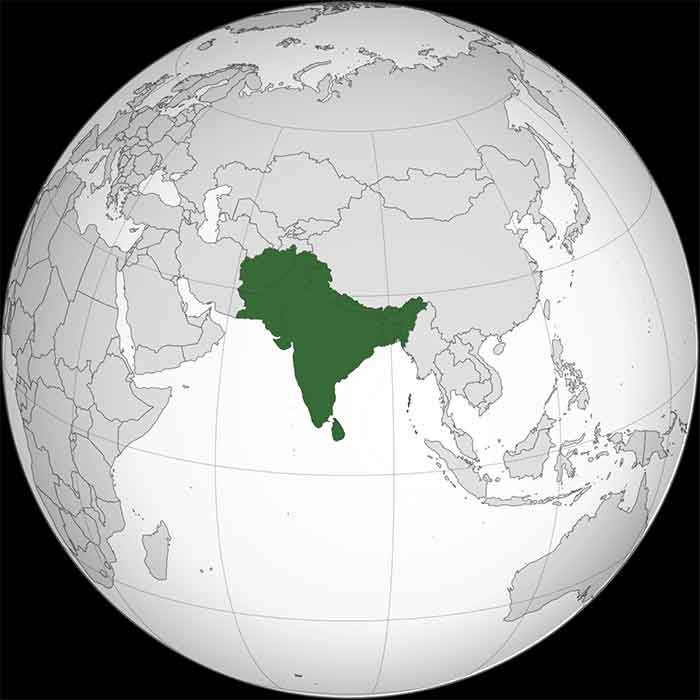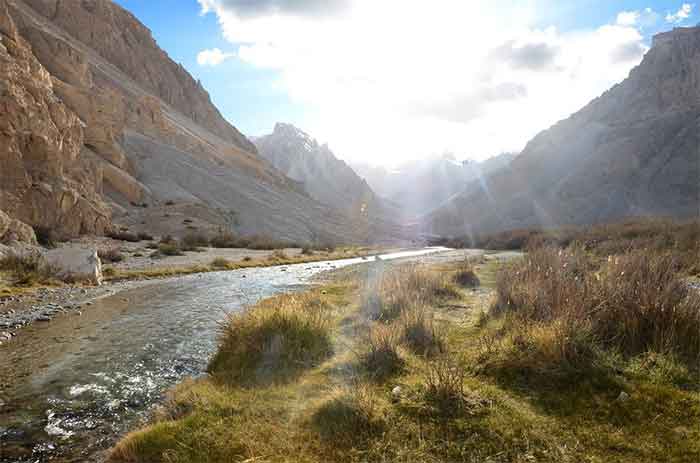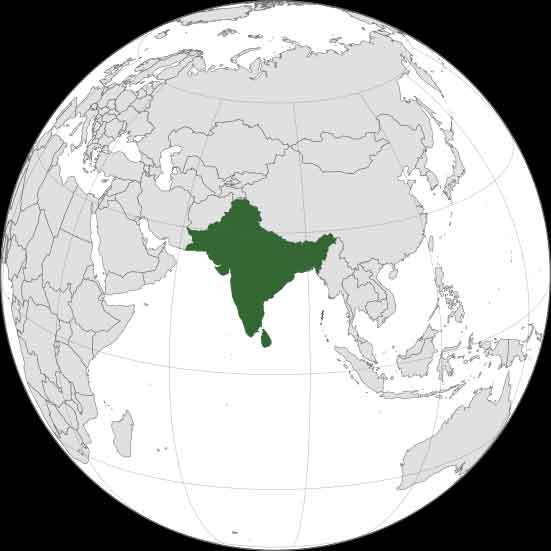
Maldives President Mohamed Muizzu has issued another warning that his government would not allow New Delhi to station its personnel, even civilian employees, beyond May 10. Showing that he is not willing to compromise on his ‘India Out’ promise to his voters. Of course, China’s invisible hand seems to be the guiding force behind Muizzu’s adamant demand. This puts India and its interests in Maldives in a tricky situation, which may have some parallel with the situation that the US found itself in after the Cuban revolution.
The success of Cuban Marxist revolutionaries on 1 January 1959, in toppling the dictatorship of Fulgencio Batista turned out to be a watershed in the United States, Cuba and Soviet relations. Riding on popular anti-government and anti-American sentiments, the years of armed struggle of the revolutionary Marxists eventually culminated in the rise of Fidel Castro as the new ruler of Cuba. The ideological proximity and generous support from the Soviets ensured that Washington could never be at ease with a socialist government in its neighbourhood. Presidents and interventions went by but the policymakers in Washington could not navigate the fear of Soviets gaining a foothold near American shores. The nuclearization of Cuba, with Soviet missiles, nearly brought the world to the brink of an all-out nuclear war. This shows the dangers of two nuclear powers competing for influence over a small island country in the vicinity. At present India finds itself facing a similar conundrum with Maldives. Thankfully, in Maldives case currently there are no talks of stationing or offering weapon systems from China, and the similarity with the US-Cuba situation ends there.
India-China Geopolitical Rivalry
Male has long been a part of India’s sphere of influence with New Delhi extending crucial support during times of crisis. It is no secret that both India and China want to strengthen their presence in the strategically located island nation. China has been trying for some time to gain a foothold in the islands that overlook the vital East-West Sea Lines of Communication critical to China’s economy. India has been trying to prevail over the leadership in Male to keep this from happening. And it is this unfolding geopolitical rivalry that has put New Delhi’s relations with Male in the spot.
The electoral victory of Mohamed Muizzu as the President of Maldives in September 2023 could very well turn out to be the ‘Cuban revolution’ type turning point in India – Maldives relations. Muizzu is not just widely viewed as having favourable disposition towards China that makes him a challenge for India, but that he rode to victory on his ‘India Out’ poll campaign and essentially defeated the (now) opposition’s ‘India First’ policy. Media popularly dubbed the September 2023 electoral face-off between Mohamed Muizzu and incumbent President Ibrahim Mohamed Solih as a runoff between pro-India and pro-China leaders. Election results are seldom decided by foreign policy goals, and it is often domestic issues which determine the outcome of elections. However, this is not to say that the sentimental inclination, especially with regards to an extra-regional power, do not play any part in shaping the preferences of the elected leaders in opting to partner with any foreign power. While Maldives first democratically elected president Abdulla Nasheed characterised the new President Muizzu as neither pro-India nor Pro-China, the words and actions of the new administration begs to differ. A report by European Election Observation Mission (EU EOM) mentioned that the now ruling Progressive Party of Maldives (PPM) and People’s National Congress (PNC) coalition spread disinformation about India’s military intentions to fuel anti-India sentiments in order to harm India’s positive image among Maldivian population.
New Delhi’s own actions of cultivating relations with Solih does not seem to have gone well with Nasheed. India preference to work with Solih over Nasheed may have been a factor in him breaking away from Solih government and helping Muizzu narrowly defeat his opponent. To be fair, Muizzu is not the first president with a perceived pro-China tilt to hold the office of the President of Maldives. In 2013 Abdulla Yameen was elected to the office with his pro-China policies eventually leading to his ouster in a coup in 2018. Yameen, now serving a 11-year sentence in corruption case, brought Male closer with Beijing during his five-year presidency. Muizzu was Minister for Housing in President Yameen’s government and is reported to have awarded most of the infrastructure projects to Chinese companies. So, given that Maldives has already had a pro-China president, what is the cause for unease in New Delhi this time around? Well, simply because things are not the way they were a decade back. China is no longer shy to exert its influence and reportedly funds the anti-India protests in association with Pakistan. It is also true that larger powers cultivate leaders in smaller or less powerful states, who they hope to use to serve their interests in the long run. It seems China has found a better replacement for Yameen.
Maldives in China’s Expansionist Plan
While Muizzu may justify his demand for asking New Delhi to recall all its military personnel and equipment as a battle for sovereignty. The reality is never black and white, and it isn’t in this case either. Maldives’s new president would have to believe that he is sophisticated enough in his foreign policy dealings, if he can successfully play the Beijing card against India, because others have tried and failed. Male isn’t the first capital in India’s neighbourhood to have been enticed and courted by China. While Pakistan has been an ally of China for decades now, countries such as Nepal, Sri Lanka and Bhutan too have been courted by China with offer of investment or resolving boundary issues. The Belt and Road Initiative (BRI) was sold by China as an opportunity for countries to get into a ‘win-win’ relation with Beijing and accrue the benefits that close economic ties with Beijing would bring. Maldives, an island nation existing on the margins of sea level and dependent on tourism for its economy, saw the BRI as an opportunity to supplement its economic growth. Proximity with China brought in infrastructure investment worth over $1.3 billion to the country. The China-Maldives relations is now sifting towards military domain as well with both countries signing the defence cooperation agreement on March 5, under which Beijing would provide free military assistance to Maldivian armed forces. Further, in the backdrop of anchoring of a Chinese survey cum surveillance ship in Maldives, Male has also refused to renew hydrographic survey agreement with India. It is apparent that China’s backing is instrumental in Maldives anti-India stance.
Domestically, there has been a perceptible increase in radicalisation within Maldives. Maldives new administration in not only keen on severing military ties with India but is also intent on disengaging culturally and socially as well. The attack on people practicing Yoga on International Yoga Day is a warning towards creeping radicalisation of Maldivian society. As per officials of Indian Cultural Centre in Maldives, sustained anti-India propaganda by China and Pakistan to counter India’s soft power, is the reason behind rising anti-India feelings. The attack by three ministers of Maldives on Indian Prime Minister for visiting Lakshadweep and the subsequent campaign of ‘boycott Maldives’ by Indian on social media is certainly damaging the relations further.
Way Forward for India
In international relations, countries don’t always get to work with another countries’ leader favourable to them. For instance, with Donald Trump as president of the US, many countries had to work with a leader who seemed unpredictable and often confrontational. India did surprisingly well in courting Trump, minor issues notwithstanding. All countries seek to secure their national interests, and the same stands true for both India and China. For Beijing, Maldives importance has steadily grown with the need for China to establish its presence militarily in locations important to it for various reasons. India has long sought to preclude foreign power’s presence in its traditional sphere of influence. Now with India and China vying for presence in Maldives, the geopolitical rivalry between the two powers is likely to intensify further.
Chinese presence in Maldives might lead to an uncomfortable situation for India, however, New Delhi should remember that Maldives is a thriving democracy, unlike Cuba. Indian leadership should desist from taking actions or measures that might provide opportunity to Muizzu government to further stoke anti-India feelings. The suspension of medical evacuation flights by India has led to Maldives signing similar agreement with Sri Lanka. The situation in Maldives is challenging for government of India and therefore New Delhi needs to make prudent choices. It should keep the opposition leadership in confidence about its benign intentions and also engage the current dispensation regarding the benefits that strong ties with a neighbouring state brings. India also needs to engage with the Maldivian civil society to curtail growing influence of China and Pakistan. Instead of taking direct action, India has to ensure that the strong pro-India voices in Maldives is heard by the people. The US took 54 years to end its hostility with Cuba, the rising tide of Maldivian hostility can be turned around by India. Indian should build bridges with the ruling parties as well.
Ankit Kumar is a Ph.D. candidate at School of National Security Studies, Central University of Gujarat.















































